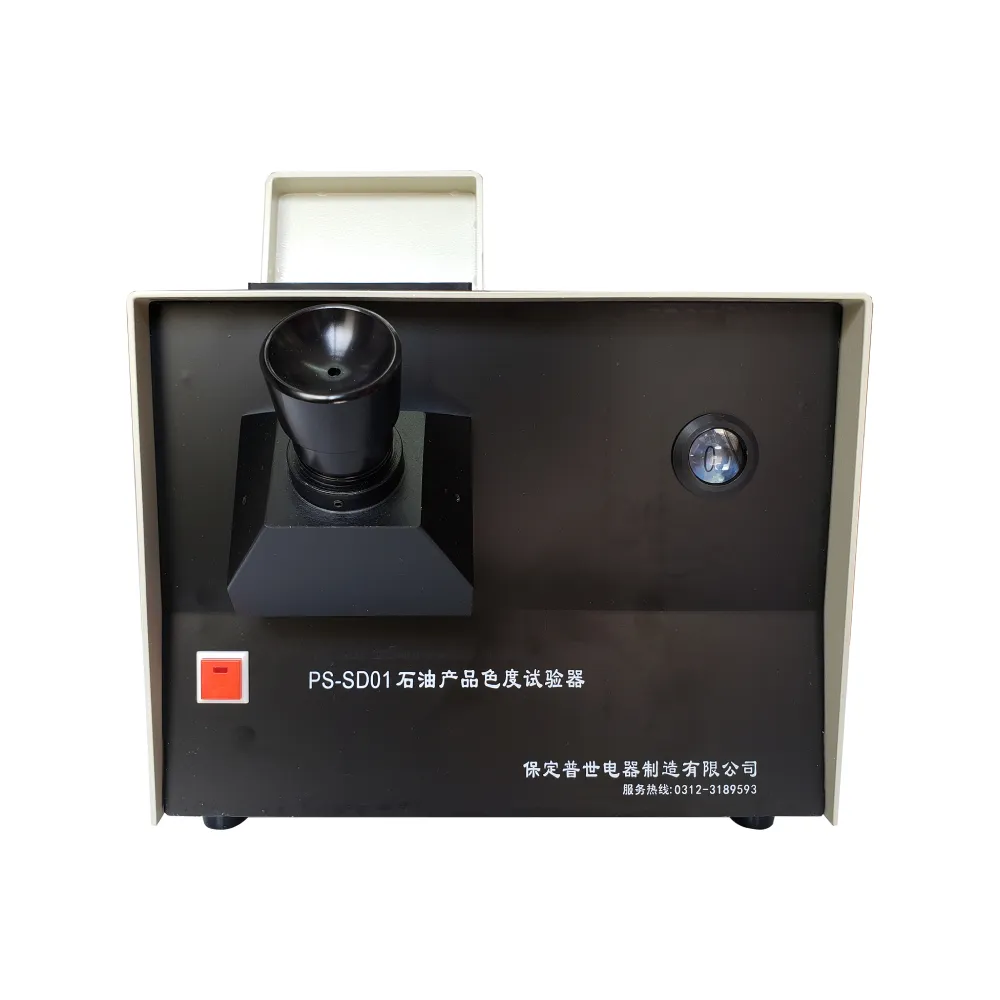TEL:
+86-0312-3189593
 English
English

Telephone:0312-3189593

Email:sales@oil-tester.com
7 月 . 10, 2024 10:45
Back to list
Exploring the Principles and Applications of Gas Chromatography in Analytical Chemistry
Gas chromatography is a widely used analytical technique that separates and analyzes compounds in a gas phase. It is based on the principle of partition chromatography, where the sample is separated into its individual components as they pass through a stationary phase.
The concept of gas chromatography involves the use of a carrier gas, which is typically an inert gas such as helium or nitrogen. The sample is injected into a column packed with a stationary phase, which is often a coated material or a liquid film. As the carrier gas flows through the column, the compounds in the sample are separated based on their differences in volatility, size, and affinity for the stationary phase.
The separation process occurs as the components of the sample move through the column at different rates. The compounds that have a stronger affinity for the stationary phase will interact more strongly and take longer to elute from the column, while less polar compounds will move through the column more quickly.
A detector at the end of the column analyzes the eluting compounds and generates a chromatogram, which is a graph showing the peaks corresponding to each compound. The area under each peak is proportional to the concentration of the compound in the sample.
Gas chromatography is widely used in various industries such as pharmaceuticals, environmental analysis, food and beverage, and forensics

concept of gas chromatography. It is commonly used to analyze complex mixtures of compounds, identify unknown substances, quantify compounds in a sample, and monitor industrial processes. One of the key advantages of gas chromatography is its high sensitivity and selectivity. It can detect compounds at low concentrations and distinguish between closely related compounds with similar chemical structures. Another advantage is its ability to analyze a wide range of compounds, from small organic molecules to large biomolecules. Gas chromatography is a versatile and powerful analytical technique that continues to evolve with advances in technology. Modern gas chromatography systems offer increased speed, resolution, and automation, making it a valuable tool for researchers and industry professionals. In conclusion, gas chromatography is a fundamental analytical technique that plays a crucial role in the field of chemistry. Its concept is based on the principles of partition chromatography, where compounds are separated based on their affinity for a stationary phase. With its high sensitivity, selectivity, and versatility, gas chromatography is an essential tool for analyzing complex mixtures and identifying unknown substances in a wide range of industries.

concept of gas chromatography. It is commonly used to analyze complex mixtures of compounds, identify unknown substances, quantify compounds in a sample, and monitor industrial processes. One of the key advantages of gas chromatography is its high sensitivity and selectivity. It can detect compounds at low concentrations and distinguish between closely related compounds with similar chemical structures. Another advantage is its ability to analyze a wide range of compounds, from small organic molecules to large biomolecules. Gas chromatography is a versatile and powerful analytical technique that continues to evolve with advances in technology. Modern gas chromatography systems offer increased speed, resolution, and automation, making it a valuable tool for researchers and industry professionals. In conclusion, gas chromatography is a fundamental analytical technique that plays a crucial role in the field of chemistry. Its concept is based on the principles of partition chromatography, where compounds are separated based on their affinity for a stationary phase. With its high sensitivity, selectivity, and versatility, gas chromatography is an essential tool for analyzing complex mixtures and identifying unknown substances in a wide range of industries.
Latest news
-
Differences between open cup flash point tester and closed cup flash point testerNewsOct.31,2024
-
The Reliable Load Tap ChangerNewsOct.23,2024
-
The Essential Guide to Hipot TestersNewsOct.23,2024
-
The Digital Insulation TesterNewsOct.23,2024
-
The Best Earth Loop Impedance Tester for SaleNewsOct.23,2024
-
Tan Delta Tester--The Essential Tool for Electrical Insulation TestingNewsOct.23,2024





